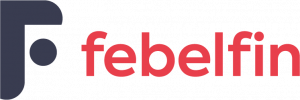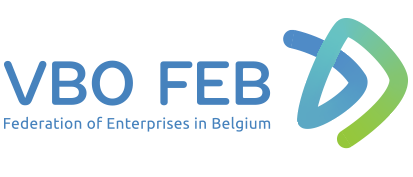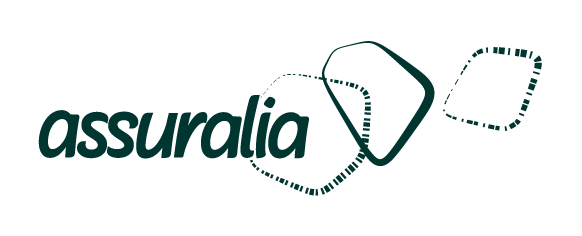20 February, 2025
#58 Portrait of a woman in finance: Géraldine Thiry
Could you briefly describe your current role at the NBB?
I am 42 years old. I’ve been a director at the National Bank of Belgium since September 2023 and I’m currently in charge of Statistics and Banking Resolution. It is perhaps worth explaining in a few words what banking resolution is, because among the many areas of work at the NBB, it is one of the least well known. Banking resolution is an alternative (i.e. an exceptional legal framework) to normal insolvency proceedings which is used to ensure that the failure of a bank does not affect (or affects as little as possible) the rest of the financial sector or the real economy, and that state aid is not required. The aim is to protect citizens and overall financial stability (by avoiding, among other things, contagion). Meanwhile, the work of the Statistics department ranges from the production of the national accounts, which underpin the calculation of GDP figures, and of financial statistics relating to bank reporting, to credit data and financial flows, as well as the dissemination of statistics (e.g. providing them to supranational and international institutions, producing infographics, and publishing them online).
It is also useful to clarify what the role of a director at the National Bank entails, as the institution’s organisational structure is unusual. As directors, we sit between the Council of Regency - which does not have all the powers of a traditional executive board - and the heads of departments and services. The role of the Board of directors is to determine the strategic direction of the Bank, and to take responsibility for decisions taken on behalf of the Bank as a whole. In this context, it is essential that the members of the Board of directors have a good, cross-cutting understanding of all departments and the issues they face, and do not confine themselves solely to the departments or services for which they are responsible. This is all the more important given that the Board of directors is a collegiate body that works almost exclusively by consensus.
Since taking up my role, I have been committed to developing and cultivating a cross-cutting and systemic vision of the institution. This means really getting involved in things, because the work of the Bank is broad, very diverse, and often complex and technical. It is also very important, in this work, to find the right balance regarding how in-depth one goes into each topic: firstly, it is not physically possible to know and understand everything in detail; secondly, it doesn’t seem desirable to me, in a leadership role, to want to master everything in depth, given the risk of slipping into micro-managing and losing sight of the “big picture” of the organisation, which is essential in a directorial role.
Another particular feature of the Board of directors of the National Bank is its pluralist make-up. In essence, the members of the Board of directors, appointed on the proposal of the government - in this case, a multi-party coalition government - are not naturally destined to agree, given their different world views or political sensitivities. However, in practice, the group dynamic within the Board means that everyone can express their point of view, even when they disagree.
Could you walk us through the main phases of your career?
I have a master’s degree in political science (international relations) and two master’s degrees in economics (general economics and advanced economics). I then completed a doctoral thesis in economics on new indicators for measuring wealth and the challenges of quantification. After my doctoral thesis I undertook a few years of post-doctoral research: at ULB on a European project (on the integration of new socio-economic indicators into decision-making); at the College of Global Studies in Paris, and leading post-doctoral research in collaboration with Oxford University on incorporating environmental and natural resources within analyses of multidimensional poverty.
My professional experience is mainly academic: I started teaching at the age of 22 as a teaching assistant in economics. I then took up a professorship at ICHEC, while continuing to teach a few economics courses at UCLouvain (where I also became a (part-time) professor after having been a visiting lecturer for almost ten years).
In a nutshell, how would you sum up your vision for your new role?
A guiding principle underscored my professional academic career: the desire to take a critical and reflective view of economic theories, in order to think better about and shape our economic systems in the face of the social and ecological challenges of the 21st century. I believe that this same theme underpins the way in which I am now carrying out my job as a director.
Have you had times when you’ve called things into question, had doubts or even moments of despair along the way? How did you manage to overcome them? Could you rely on allies?
Yes, of course. For example, my thesis in economics, which I started in 2007-2008, focused on sustainable economic models and new indicators for measuring wealth. At the time, the subject was not widely discussed and had not yet benefited from the impetus provided by the Stiglitz-Sen-Fitoussi Commission (a commission of inquiry set up in 2008 by the then President of France to look into the creation of new indicators to measure wealth, and led by three renowned economists, two of whom are Nobel laureates). So the subject was still fairly niche and rather discredited by some of my fellow economists.
A number of things helped me to overcome any feelings of discomfort or discouragement when faced with denigration of my work. Firstly, the fact that many people in the wider academic community (e.g. socio-economists, philosophers, lawyers and environmentalists) gave credit and relevance to my work (often believing it to be better able to tackle the issues of our time). Secondly, the determination of my thesis supervisor, who asked the right questions, the profound questions that had led me to study social sciences (political science and then economics) in the first place. And finally, the meaning I gave to my research: I was passionate about putting my skills in economics at the service of society.
At difficult moments, as long as I feel that what I am producing in my work is aligned with my commitment to a just society, then I tell myself that it is worth it. And I certainly don’t regret it.
Today, in my new role at the National Bank, this is still the case. It’s also very important to remind yourself that you’re not alone, and to know how to listen to the people around you, who can give you a finer, more nuanced picture. And that’s how we can create collective work, when different points of view are able to come together for a common purpose.
And then, last but not least, I have the day-to-day support of someone to whom I owe a great deal: my partner. He’s always inviting me to think, sharing his own thoughts and those that come from his extensive reading, and when necessary, he helps me to take a step back and look at complex situations from a different angle.
What does inclusive leadership mean to you?
It’s about adopting a position in which you start with a presumption of competence: I don’t approach my colleagues with the preconception that they won’t be up to the job, that they won’t do the right thing, or that they’re only thinking of their own interests. No, I assume that people are competent and well-intentioned in their work. Some people will think that’s naivety. I say it’s inclusive realism: yes, of course, some people may be less diligent or committed to their work, and you can’t expect everyone to be 100% motivated about every sort of task. But I am convinced that if employees feel from the outset that their line manager assumes that they are going to do their job well, they will feel recognised and valued. And for the manager or director, such a presumption of competence, which calls for goodwill, is an important basis for frank dialogue: it is easier to criticise someone if that person feels respected, because they will take the criticism for what it is, criticism of an action or a task carried out, and not criticism of their whole being, which could lead to a loss of self-esteem or demotivation. I’ve also seen this with my students: goodwill makes it possible to be demanding. And this demanding approach can focus on the content of work, but also on attitude, particularly in interactions within teams.
Another essential element is recognising the work of our colleagues and investing in human relations. In this respect, I’m keen to be a role model. I’ve always admired the skills of the experts who work at the Bank, and one should demonstrate that recognition by paying particular attention to people and their work.
According to a study by Women in Finance, 37% of women who hold a senior leadership position in our sector say they have to adopt a leadership style that is not their own. How have you been able to maintain your own authentic leadership style and remain yourself?
Perhaps for the same reason that enabled me to do a doctoral thesis in economics in a department where my work was very different from what was usually done there: the conviction that it makes sense in terms of justice, of well-being at work, and above all as a citizen who contributes to society through her work.
My values very firmly guide my way of being. If a decision seems essential to me, I think I have enough self-confidence not to set those values aside because the context in which the decision is being taken is pressing or hostile. But of course (and because it’s also an essential value in my eyes!), I’m always open to reassessing things if it turns out that I’m wrong.
Another element that may explain my leadership style is the importance I attach to the experience of my colleagues, and the transparency with which I recognise my own learning needs. It can be a tightrope walk to strike a balance between being the person who has a lot to learn and not being reduced to the ‘good little student’, because I want to assume my responsibilities. You mustn’t be afraid to take your rightful place, while remaining attentive to the posture you assume.
In your career choices and in your day-to-day work, what space do you give to diversity of opinion, background or approach?
A great deal, even a little in spite of myself, given that I often represent diversity (and I’m not talking here just as a woman, but as an ecological economist).
On an interpersonal level, I do my best to open up the space for people to speak freely through a kind, listening attitude.
This is important because we see that women have the tendency to become self-inhibited, so we need to be able to open up this space of psychological safety so that they can express themselves.
What would you say today to the young Géraldine who has just finished her studies? More generally, what message would you give to young women at the end of their studies who are hesitant about going into finance?
Personally, I didn’t want to go into finance. So I didn’t find myself in the same situation as those young women who are hesitating to work in this sector. But I would advise them to read Eva Sadoun’s book “Une économie à nous”, which puts finance back into the context of the economy and of society as a whole. For me, it’s important to ask yourself the question as to why you’re in finance in the first place. And this book answers that question very well. In other words, I would tell them to ask themselves the (in my view, fundamental) question of what they want to finance. To what kind of finance do they want to contribute. And for what kind of society.
Do you also have a message for men who have career ambitions in the financial sector?
I would say the same thing to them: never lose sight of the fact that finance is not an end in itself but rather a potentially very powerful means at the service of a society full of projects. And it is with this societal perspective in mind that the National Bank of Belgium, like many other central banks, includes supervision among its tasks. So I would urge each of them to be aware of the power of finance and the responsibility that goes with it. I would invite each of them to use finance with discretion, wisdom and to be consistent.



